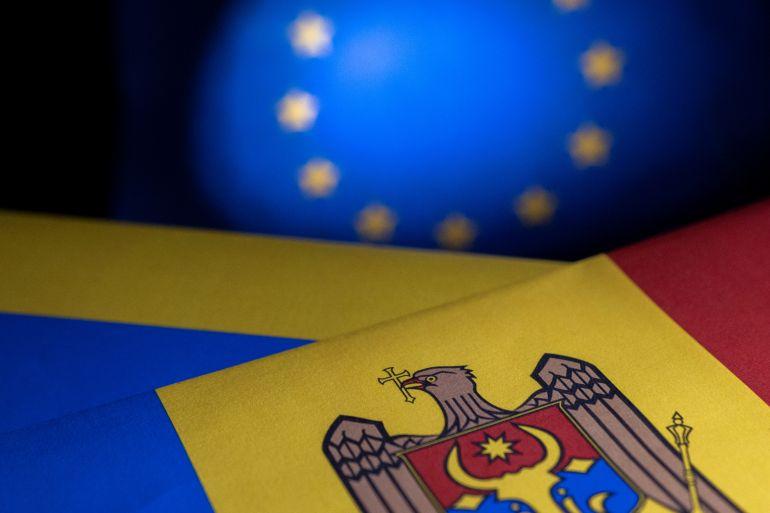A symbolic ceremony in Luxembourg signals the beginning of negotiations between the EU and Ukraine and Moldova, indicating a move away from Russian influence.
The European Union is set to formally kick off accession negotiations with Ukraine and Moldova following the approval from the EU's member states. The commencement of talks will be commemorated by a ceremony in Luxembourg. While the process is expected to be lengthy and challenging, the initiation of discussions will provide encouragement to both countries, especially war-torn Ukraine, as they strive to move away from their Soviet history.
The agreement of the 27 EU members was finalized last week, despite Hungary's attempts to block the decision – a country with close ties to Russia. The ceremony on Tuesday will mark the beginning of a rigorous process, where negotiations will only commence in earnest once the EU evaluates their legislation to determine the reforms required to meet the EU's standards.
Although the talks do not guarantee eventual EU membership, previous cases such as Turkey and various Western Balkan states have spent years in the accession process. The recent conflict in Ukraine due to Russia's actions has reignited the EU's expansion efforts, much to Moscow's displeasure. Furthermore, Georgia was granted candidate status in December, although facing delays due to internal political conflicts.
For Ukraine, the start of negotiations is a significant milestone in the midst of battling Russia's invasion. The conflict traces back to the Maidan uprising in 2014, leading to Ukraine's bid to join the EU after Russia's invasion in 2022. Moldova closely followed suit, with Russia accused of attempting to destabilize the pro-Western government.
President Zelenskyy affirmed this moment as historic, stating that Ukraine will always be part of a united Europe. Deputy Prime Minister Stefanishyna of Ukraine and Prime Minister Recean of Moldova will lead their respective delegations in the Accession Conference, with Belgium's Foreign Minister speaking on behalf of the EU during its rotating presidency.
The upcoming meetings with Ukraine and Moldova will initiate a screening process to assess the alignment of their laws with EU standards and outline negotiations conditions on various subjects. Progress towards the next phase is uncertain, as Hungary prepares to hold the EU's rotating presidency in six months.
Source: ALJAZEERA
ALJAZEERA MEDIA NETWORK
